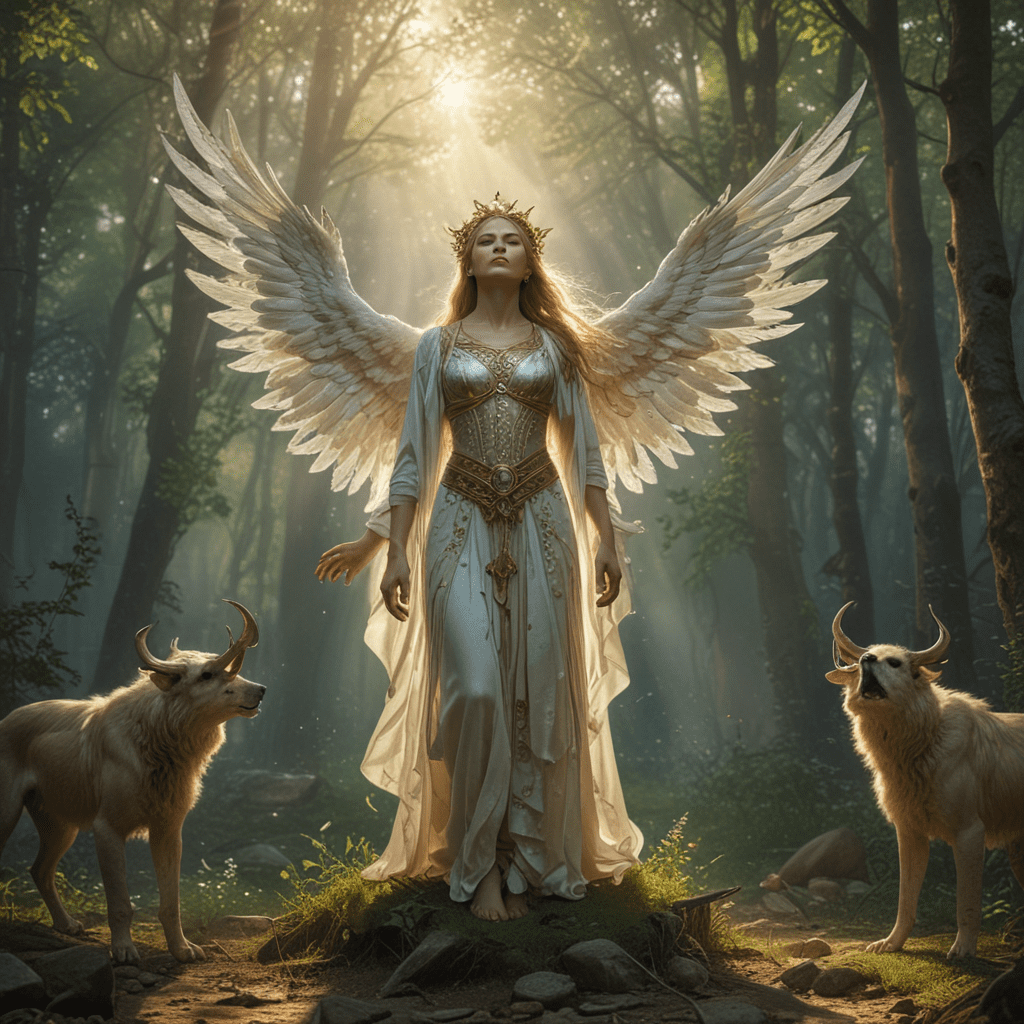The Symbolism of Dreams in Slavic Mythology
In Slavic cultures, dreams have always borne great significance, playing a crucial role in understanding the world and one's place within it. The enigmatic realm of dreams was believed to offer glimpses into the past, present, and future, revealing hidden truths and guiding life's path.
The Role of Veles in Dream Interpretation
The Slavic god, Veles, who ruled over both the underworld and the realm of dreams, held a profound connection to dream interpretation. As the guardian of cattle and fertility, Veles was believed to bestow prophetic dreams, especially to those connected to the natural world. His guidance could be sought through rituals and offerings, allowing individuals to unravel the mysteries of their nocturnal visions.
Common Dream Symbols and Their Meanings
Slavic mythology abounds with dream symbols that carry specific interpretations. Animals, for instance, held great significance: horses symbolized strength and power, while wolves represented cunning and agility. Natural elements also played a pivotal role: water denoted emotions and healing, while fire symbolized passion and transformation. Common objects, such as keys, hinted at unlocking hidden knowledge, and mirrors revealed the inner self.
The Divination of Dreams
Interpreting dreams was a highly respected practice in Slavic cultures. Individuals relied on dream oracles and diviners to decipher the messages hidden within their nocturnal experiences. These experts used various methods, such as dream dictionaries that assigned meanings to specific symbols. They also studied the timing of dreams, believing that dreams occurring during certain nights or phases of the moon held greater significance.
6. Dreams as a Connection to the Spirit World
Slavic mythology viewed dreams as a bridge between the physical and spiritual realms. It was believed that during sleep, the soul would detach from the body and venture into the spirit world. Encounters with ancestors, spirits, or even the gods were not uncommon. These encounters could provide guidance, warnings, or glimpses into the future.
7. The Healing Power of Dreams
Dreams were also recognized for their healing properties. It was believed that certain dreams could diagnose illnesses or reveal hidden ailments. Dream herbs and rituals were often used to promote healing and cure diseases. By interpreting their dreams, individuals could gain insights into their physical and emotional well-being.
8. Dream Interpretation in Slavic Folklore
Slavic folklore is replete with examples of dream symbols and their interpretations. Fairy tales and legends often feature characters who encounter significant dreams that guide their actions or reveal important truths. These stories reflect the cultural significance of dreams and their role in shaping personal narratives.
9. Modern Interpretations of Slavic Dream Symbolism
In modern times, the symbolism of Slavic dreams continues to influence the field of psychology. Contemporary dream analysts draw inspiration from Slavic mythology to interpret dreams, recognizing the universality of certain symbols and their deep-rooted connections to the human psyche. This cross-cultural approach enriches the understanding of dreams and provides a broader perspective on the human experience.
10. Conclusion
In Slavic mythology, dreams were a profound and multifaceted phenomenon. They were seen as a window into the past, present, and future, connecting individuals to the spirit world and offering guidance for personal growth and healing. The богатый символизм of Slavic dreams continues to inspire and inform our understanding of the human psyche, bridging the gap between ancient traditions and modern psychological insights.
FAQs
Q: Why were dreams so important in Slavic culture?
A: Dreams were believed to hold prophetic messages, reveal hidden truths, and connect individuals to the spirit world. They were a source of guidance, healing, and divination.
Q: Who was the Slavic god of dreams?
A: Veles, the god of the underworld and cattle, was also associated with dreams. He was believed to bestow prophetic visions and guide individuals in their nocturnal journeys.
Q: How were dreams interpreted in Slavic cultures?
A: Dreams were interpreted using dream oracles, diviners, and dream dictionaries. The timing of dreams and the presence of specific symbols played a significant role in their interpretation.
Q: Did dreams have healing properties in Slavic mythology?
A: Yes, certain dreams were believed to diagnose illnesses or reveal hidden ailments. Dream herbs and rituals were used to promote healing and cure diseases.
Q: How does Slavic dream symbolism influence modern psychology?
A: Contemporary dream analysts draw inspiration from Slavic mythology to interpret dreams, recognizing the universality of certain symbols and their deep-rooted connections to the human psyche.



